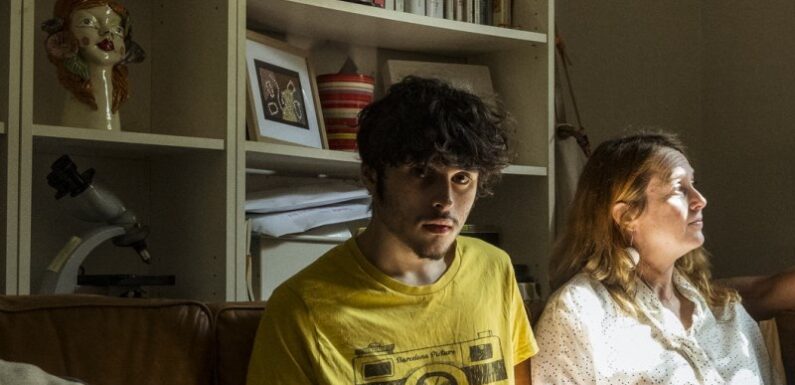
Save articles for later
Add articles to your saved list and come back to them any time.
Key points
- Toorak-based Bespoke Development Group appealed the rejection of a permit for a seven-storey apartment building.
- Merri-bek council rejected the permit partly because it infringed on the human rights of a neighbouring family.
- In pre-hearing sessions, the developer argued to VCAT that the human rights considerations were “misconceived”.
- The VCAT member refused to strike out the human rights grounds, a move lawyers have labelled significant.
- As a result, the developer will change the design of the building to decrease shadowing on the neighbours’ backyard.
Sunlight has won in a planning dispute over a seven-storey apartment block in Brunswick, with changes to the development’s design required to ensure less overshadowing of a neighbouring property.
The ruling is being hailed as a win for human rights when adjudicating planning disputes after the Victorian Civil and Administrative Tribunal sided with Merri-bek council to protect sunlight on the house of a family with a son on the autism spectrum.
Philippe Yardin and Elisa Hill with son Jai who lives with severe autism.Credit: Chris Hopkins
Merri-bek (formerly Moreland) council voted unanimously in March to refuse a planning permit for the apartment block in Dods Street, Brunswick, against the recommendations of its planning officers.
The council found the proposed development was contrary to the Charter of Human Rights and Responsibilities Act on the basis that it infringed on rights to privacy, family and home.
Dr Elisa Hill and her husband, Philippe Yardin, have lived for 16 years in the weatherboard home with their son, Jai, who has profound autism and intellectual disability and can rarely leave the house.
An artist’s render of the original design for the apartment building in Dods Street in Brunswick. VCAT has now issued a permit for the building but it will be substantially redesigned.
The family moved into the street before it was rezoned to allow multi-storey apartment buildings.
According to his mother, 19-year-old Jai is minimally verbal and needs 24-hour care for his complex needs. He cannot go to the toilet or clean independently, has “uncontrolled spontaneous behaviours” like constant running or irritable outbursts, and his sensory issues mean he frequently throws off all his clothes.
Jai could not go out into the community without two adults at all times, which meant he spent most of his time at home, Hill told a council meeting in March. Having a small area to access nature in the backyard was key to “calming” him.
The development proposed by Toorak-based Bespoke Development Group, when combined with another already-approved building on the other side of the family home, would have reduced the sunlight in the family’s backyard from six hours a day to two at certain times of the year.
The seven-storey proposal would have also exposed the family’s backyard to overlooking by neighbours from balconies and windows in the new building.
The developer appealed against the council decision to VCAT and in prehearing conferences sought to have the human rights considerations struck out, arguing they were “misconceived”.
But in a rare development, VCAT last month refused to “strike out” the human rights considerations. Member Susan Whitney stated she was “not persuaded that circumstances exist that
warrant or justify a strike-out”.
As a result, instead of proceeding to a full VCAT hearing, the developers agreed with the council and Hill to changes to the design to prevent much of the overshadowing and overlooking into the family’s backyard.
According to the public orders, this included changes to heights and floor plans of parts of the building, its windows and privacy screens.
VCAT approved the changes last week and ordered a permit be granted for construction to go ahead.
Hill said her family was “completely delighted” by the outcome. Although her family will still lose some sunlight under the new agreed architectural designs, it won’t be as severe as it could have been.
“We understand that there’s a housing crisis and that buildings need to be put up,” she said.
“We were just devastated at the effect that it would have on us because of our situation. We love good development and I want to say that the architects have been fantastic.”
Barrister Kylie Evans, who worked pro bono on the case, said there had been very few cases in which human rights had been raised in planning cases in Victoria, let alone involving the element of disability.
The family in their backyard.Credit: Chris Hopkins
“Although this case is resolved, this decision that we have will pave the way for further consideration to how human rights should be taken into account by councils,” she said.
Chris Wiseman, solicitor and partner at Mills Oakley, who also worked on the matter for Hill’s family, said developers would need to pay greater scrutiny in the due diligence they carried out on sites they wished to develop.
Bespoke Development Group did not respond to The Age’s requests for comment, but Best Hooper Lawyers who acted for the developer published an article on its website last month acknowledging the strike-out decision had “very real implications for the planning industry more broadly”.
A spokeswoman for Merri-bek City Council said that while the council was unable to comment on the details of what had been agreed at the conference it was “pleased that a mediated resolution was reached which satisfied the concerns of all parties”.
Get the day’s breaking news, entertainment ideas and a long read to enjoy. Sign up to receive our Evening Edition newsletter here.
Most Viewed in National
From our partners
Source: Read Full Article


